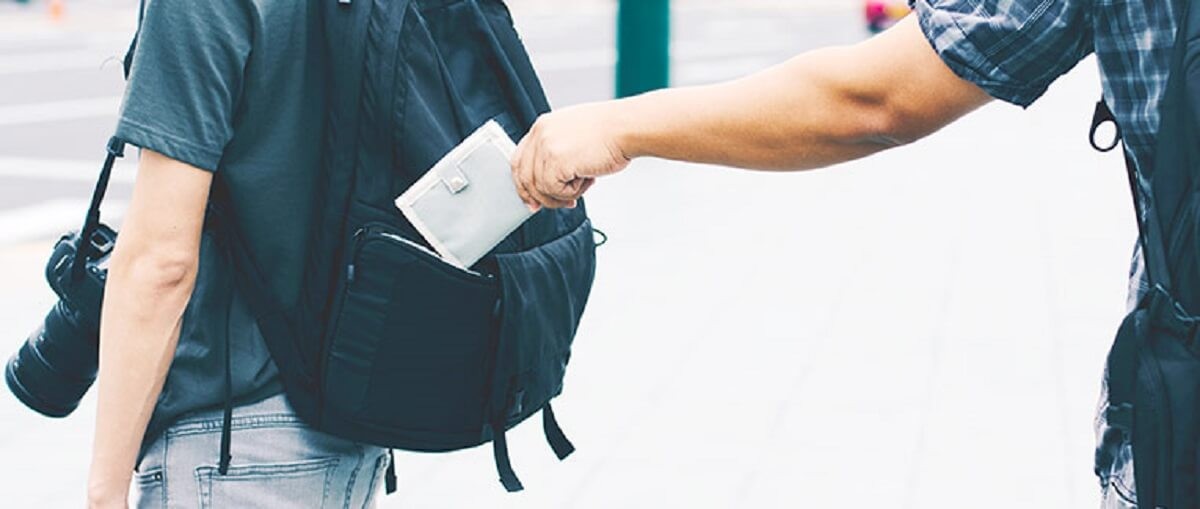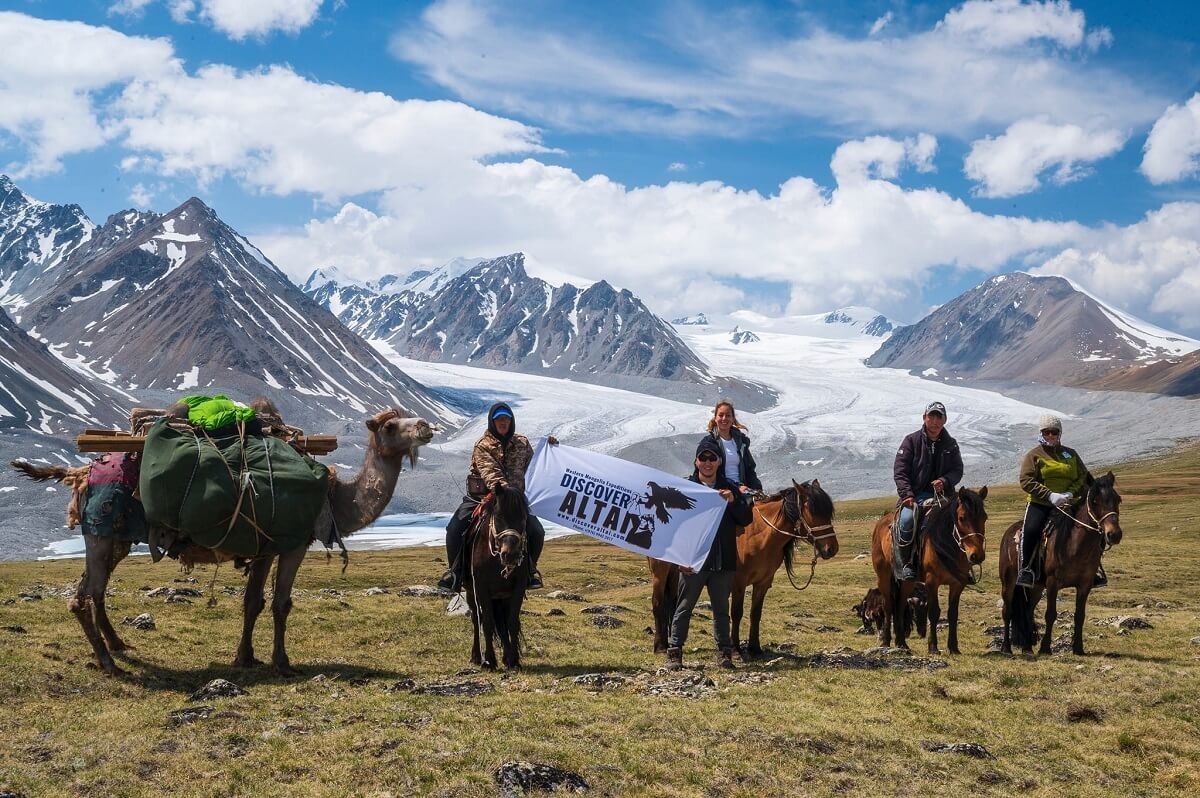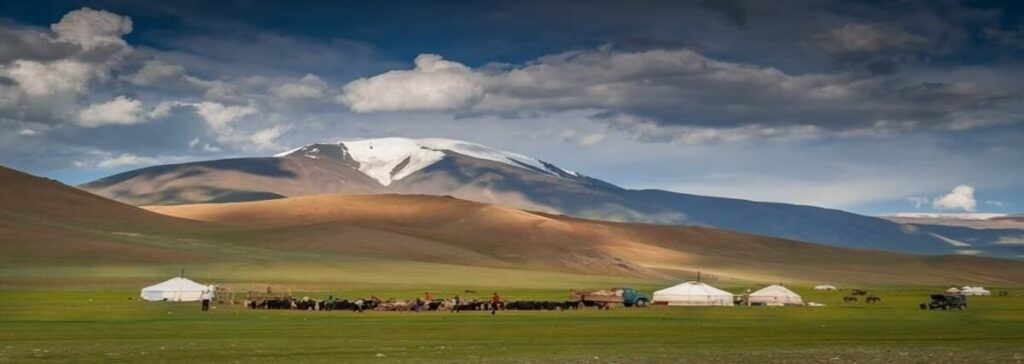Is Mongolia Safe To Travel To? If you’re planning a trip to this captivating country, understanding safety aspects is crucial. At TRAVELS.EDU.VN, we’ll provide detailed insights into Mongolia’s safety, ensuring a secure and enjoyable journey. Discover practical tips, cultural nuances, and expert advice for a seamless adventure, including information on travel insurance, emergency contacts, and common scams to avoid.
1. Mongolia: A Safe Haven in Asia
Mongolia is generally considered a safe country for travelers. Its ranking as the 8th safest in Asia and 40th globally reflects a relatively low crime rate compared to other destinations. However, like any travel destination, it’s crucial to be aware of potential risks and take necessary precautions. This involves understanding the local context, respecting cultural norms, and being mindful of your surroundings. Travelers can mitigate risks and fully enjoy the unique experiences Mongolia offers by staying informed and prepared.
2. Understanding Crime Rates in Mongolia
While Mongolia boasts a reputation for safety, understanding specific crime trends is essential. Petty theft, such as pickpocketing, can occur in crowded areas, especially in markets like Narantuul Bazaar and on public transportation in Ulaanbaatar. Violent crime is relatively rare, but incidents involving intoxicated individuals can occur, particularly at night. Travelers should exercise caution in urban nightlife settings and avoid walking alone late at night. Being aware of these potential risks allows you to take proactive measures, such as securing valuables and avoiding risky situations.
 Crowded market scene in Ulaanbaatar
Crowded market scene in Ulaanbaatar
3. Safety Tips for Travelers in Mongolia
3.1 General Safety Precautions
- Secure Your Belongings: Keep valuables out of sight and use money belts or hidden pouches to protect against pickpocketing.
- Avoid Walking Alone at Night: Stick to well-lit and populated areas after dark, particularly in Ulaanbaatar.
- Use Licensed Taxis: Opt for reputable taxi services to avoid scams or unsafe rides.
- Be Aware of Your Surroundings: Pay attention to your environment and trust your instincts if a situation feels uneasy.
- Stay Informed: Keep up-to-date with local news and travel advisories from your embassy or consulate.
3.2 Transportation Safety
- Driving in Remote Areas: If driving independently, ensure your vehicle is well-equipped for off-road conditions, carry extra fuel and supplies, and inform someone of your itinerary.
- Public Transportation: Be vigilant on buses and trains, especially during peak hours when petty theft is more common.
- Hitchhiking: While hitchhiking is relatively common in rural areas, exercise caution and consider the risks involved.
3.3 Cultural Sensitivity
- Respect Local Customs: Be mindful of Mongolian traditions and customs, especially when visiting religious sites or rural communities.
- Dress Modestly: While attitudes are becoming more liberal, dressing modestly, particularly in rural areas, shows respect for local culture.
- Learn Basic Mongolian Phrases: Knowing a few basic phrases can enhance your interactions with locals and demonstrate your respect for their culture.
4. Safety Considerations for Female Travelers
Mongolia is generally a safe and egalitarian society, with women often treated with respect and courtesy. However, female travelers should still take certain precautions to ensure their safety and comfort.
4.1 Cultural Norms and Expectations
- Dress Modestly: While urban areas are more accepting of Western clothing, dressing modestly in rural regions can help avoid unwanted attention.
- Avoid Walking Alone at Night: Like any destination, it’s advisable to avoid walking alone at night, especially in poorly lit areas.
- Trust Your Instincts: If a situation feels uncomfortable or unsafe, remove yourself from it immediately.
4.2 Practical Tips for Female Travelers
- Accommodation: Choose reputable hotels or guesthouses with good security measures.
- Transportation: Use licensed taxis or arrange transportation through your hotel.
- Feminine Hygiene Products: While available in Ulaanbaatar, feminine hygiene products may be limited in rural areas, so it’s best to bring your own.
- Emergency Contacts: Keep a list of emergency contacts, including your embassy or consulate, local police, and medical facilities.
5. Adventure Travel Safety in Mongolia
Mongolia’s vast and untouched landscapes offer incredible opportunities for adventure travel, including hiking, trekking, horseback riding, and off-road driving. However, these activities also come with inherent risks that travelers need to be aware of.
5.1 Wilderness Safety
- Plan Ahead: Thoroughly research your route, check weather conditions, and inform someone of your itinerary.
- Travel with a Guide: For remote or challenging treks, it’s advisable to hire a local guide who is familiar with the terrain and potential hazards.
- Carry Essential Supplies: Pack a well-stocked first-aid kit, navigation tools (map, compass, GPS), extra food and water, and appropriate clothing for changing weather conditions.
- Be Aware of Wildlife: Mongolia is home to wildlife, including wolves, bears, and snow leopards. Store food properly and avoid approaching or feeding animals.
- Altitude Sickness: If trekking at high altitudes, acclimatize gradually and be aware of the symptoms of altitude sickness.
5.2 Horseback Riding Safety
- Choose a Reputable Operator: Select a tour operator with experienced guides and well-trained horses.
- Wear Appropriate Gear: Wear a helmet and appropriate footwear, and ensure your saddle is properly fitted.
- Listen to Your Guide: Follow your guide’s instructions carefully and be aware of the horse’s behavior.
- Be Cautious: Horses can be unpredictable, so maintain a safe distance and avoid sudden movements.
5.3 Off-Road Driving Safety
- Use a Suitable Vehicle: Ensure your vehicle is well-maintained and suitable for off-road conditions, ideally a 4×4.
- Carry Recovery Gear: Pack essential recovery gear, including a shovel, tow rope, and spare tire.
- Drive Defensively: Be aware of potential hazards, such as potholes, rocks, and river crossings.
- Inform Someone of Your Plans: Let someone know your route and expected return time, especially if traveling in remote areas.
 Mongolian guide leading a trek
Mongolian guide leading a trek
6. Mongolian Culture: Friendliness and Hospitality
Mongolians are known for their warmth, hospitality, and strong sense of community. This cultural trait extends to visitors, who are often greeted with kindness and assistance.
6.1 Hospitality Norms
- Guest Treatment: Guests are highly valued in Mongolian culture, and hosts often go out of their way to ensure their comfort.
- Offering Food and Drink: It’s customary to offer guests food and drink, such as suutei tsai (salty milk tea) or airag (fermented mare’s milk).
- Refusing Politely: If you’re offered something you can’t accept, it’s polite to refuse with grace and gratitude.
6.2 Respecting Traditions
- Entering a Ger: When entering a traditional ger (nomadic dwelling), step over the threshold rather than on it.
- Passing Objects: Pass objects with your right hand or both hands as a sign of respect.
- Photography: Ask for permission before taking photos of people, especially in rural areas.
6.3 Useful Mongolian Phrases
- Sain baina uu?: Hello
- Tanii biye taivan uu?: How are you?
- Bayarlalaa: Thank you
- Uuchlaarai: Excuse me/Sorry
7. Navigating Potential Scams
While Mongolia is generally safe, petty scams can occur, particularly in tourist areas. Being aware of these potential scams can help you avoid becoming a victim.
7.1 Common Scams
- Taxi Scams: Unlicensed taxi drivers may overcharge tourists or take longer routes.
- Begging Scams: Individuals may approach tourists with fabricated stories or requests for money.
- Overpriced Souvenirs: Vendors in tourist areas may inflate prices for souvenirs.
7.2 Tips to Avoid Scams
- Use Reputable Services: Rely on licensed taxi services, established tour operators, and reputable hotels.
- Negotiate Prices: Before purchasing goods or services, negotiate the price to ensure you’re getting a fair deal.
- Be Wary of Strangers: Be cautious of overly friendly strangers who may have ulterior motives.
- Trust Your Instincts: If a situation feels suspicious, remove yourself from it.
8. Health and Medical Safety
Maintaining good health while traveling in Mongolia is crucial for a safe and enjoyable experience. Travelers should be aware of potential health risks and take necessary precautions.
8.1 Vaccinations and Preventative Measures
- Consult Your Doctor: Consult your doctor or a travel clinic at least 6-8 weeks before your trip to discuss necessary vaccinations and health precautions.
- Recommended Vaccinations: Recommended vaccinations may include hepatitis A and B, typhoid, rabies, and Japanese encephalitis, depending on your itinerary and activities.
- Travel Insurance: Ensure you have comprehensive travel insurance that covers medical expenses, including emergency evacuation.
8.2 Common Health Risks
- Altitude Sickness: If traveling to high-altitude areas, be aware of the symptoms of altitude sickness and acclimatize gradually.
- Food and Water Safety: Drink bottled or boiled water and avoid eating raw or undercooked food to prevent traveler’s diarrhea.
- Sun Protection: Protect yourself from the sun with sunscreen, a hat, and sunglasses, especially at high altitudes.
- Insect Bites: Use insect repellent to protect yourself from mosquito bites, which can transmit diseases like West Nile virus.
8.3 Medical Facilities
- Ulaanbaatar: Ulaanbaatar has several international-standard hospitals and clinics, but medical facilities in rural areas may be limited.
- Medical Evacuation: In case of a serious medical emergency, medical evacuation may be necessary. Ensure your travel insurance covers this.
9. Essential Emergency Contacts
In case of an emergency, having the right contact information can make a significant difference.
9.1 Important Numbers
- Police: 102
- Ambulance: 103
- Fire Department: 101
- Emergency Management Agency: 105
9.2 Embassy and Consulate Information
- U.S. Embassy in Ulaanbaatar: +976 7007-6001
- British Embassy in Ulaanbaatar: +976 11 455-001
- Canadian Embassy in Ulaanbaatar: +976 7010-1100
9.3 Additional Resources
- TRAVELS.EDU.VN: +1 (707) 257-5400
- Website: TRAVELS.EDU.VN
- Address: 123 Main St, Napa, CA 94559, United States
10. Travel Insurance: A Must-Have for Mongolia
Travel insurance is an essential investment for any trip to Mongolia. It provides financial protection and peace of mind in case of unexpected events.
10.1 Coverage Options
- Medical Expenses: Covers medical treatment, hospitalization, and emergency evacuation.
- Trip Cancellation: Reimburses non-refundable expenses if you have to cancel your trip due to illness or other covered reasons.
- Lost or Stolen Belongings: Covers the cost of replacing lost or stolen luggage, personal items, and travel documents.
- Adventure Activities: Ensure your policy covers adventure activities like hiking, horseback riding, and off-road driving.
10.2 Choosing the Right Policy
- Read the Fine Print: Understand the terms and conditions of your policy, including exclusions and limitations.
- Compare Quotes: Compare quotes from multiple insurance providers to find the best coverage at the most competitive price.
- Consider Your Needs: Choose a policy that meets your specific needs and travel style.
11. Weather and Natural Disasters
Mongolia’s extreme climate and geographical location make it susceptible to certain natural disasters. Travelers should be aware of these risks and take necessary precautions.
11.1 Extreme Weather
- Winter: Mongolia experiences harsh winters with temperatures dropping to -40°C (-40°F) or lower. Dress warmly in layers and be prepared for icy conditions.
- Summer: Summers can be hot, with temperatures reaching 30°C (86°F) or higher. Protect yourself from the sun and stay hydrated.
- Sudden Weather Changes: Be prepared for sudden weather changes, especially in mountainous areas.
11.2 Natural Disasters
- Earthquakes: Mongolia is located in an active seismic zone and experiences frequent earthquakes. Be aware of earthquake safety procedures.
- Dust Storms: Dust storms are common in the Gobi Desert, particularly in spring. Wear protective eyewear and cover your face.
- Floods: Floods can occur during the rainy season (July-August), especially in low-lying areas.
11.3 Staying Informed
- Check Weather Forecasts: Monitor weather forecasts regularly and be prepared to adjust your plans accordingly.
- Heed Local Warnings: Pay attention to local warnings and advisories issued by authorities.
- Emergency Plan: Have an emergency plan in place in case of a natural disaster.
12. Responsible Tourism in Mongolia
As a traveler, you can contribute to the sustainable development of Mongolia by practicing responsible tourism.
12.1 Environmental Responsibility
- Reduce Waste: Minimize your waste by bringing reusable water bottles, shopping bags, and containers.
- Respect Nature: Avoid littering, stay on marked trails, and do not disturb wildlife or their habitats.
- Conserve Water and Energy: Be mindful of your water and energy consumption, especially in areas with limited resources.
12.2 Social Responsibility
- Support Local Businesses: Purchase goods and services from local businesses and artisans to support the local economy.
- Respect Local Culture: Be respectful of Mongolian traditions and customs and avoid behaviors that may be offensive.
- Learn About the Culture: Take the time to learn about Mongolian culture and history to deepen your understanding and appreciation of the country.
 Mongolian family in traditional dress
Mongolian family in traditional dress
13. Frequently Asked Questions (FAQs) About Safety in Mongolia
1. Is Mongolia safe for solo female travelers?
Mongolia is generally safe for solo female travelers. However, it’s advisable to take the same precautions as you would in any other destination, such as avoiding walking alone at night and dressing modestly in rural areas.
2. What are the common scams in Mongolia?
Common scams include taxi overcharging, begging scams, and overpriced souvenirs.
3. Is it safe to drink tap water in Mongolia?
It is not recommended to drink tap water in Mongolia. Stick to bottled or boiled water.
4. Are there any dangerous animals in Mongolia?
Mongolia is home to wildlife, including wolves, bears, and snow leopards. However, attacks on humans are rare.
5. What should I do if I encounter a medical emergency in Mongolia?
Contact the local ambulance service (103) or seek medical assistance at a hospital or clinic.
6. Is it safe to drive in Mongolia?
Driving in Mongolia can be challenging due to poor road conditions and limited infrastructure. If driving independently, ensure your vehicle is well-equipped and inform someone of your itinerary.
7. What should I pack for a trip to Mongolia?
Pack appropriate clothing for the season, including layers for changing weather conditions. Also, bring sunscreen, insect repellent, a first-aid kit, and any necessary medications.
8. Do I need any vaccinations for Mongolia?
Consult your doctor or a travel clinic to determine recommended vaccinations for Mongolia.
9. How can I stay safe during adventure activities in Mongolia?
Choose reputable tour operators, wear appropriate gear, and follow your guide’s instructions carefully.
10. What should I do if I lose my passport in Mongolia?
Report the loss to the local police and contact your embassy or consulate for assistance.
14. Let TRAVELS.EDU.VN Plan Your Safe and Unforgettable Mongolian Adventure
Planning a trip to Mongolia can be overwhelming, but with TRAVELS.EDU.VN, you can rest assured that your safety and enjoyment are our top priorities. We offer a range of expertly curated tours and services designed to provide you with a seamless and unforgettable experience.
14.1 Why Choose TRAVELS.EDU.VN?
- Expert Knowledge: Our team has extensive knowledge of Mongolia and its unique challenges and opportunities.
- Safety First: We prioritize your safety and well-being, providing you with comprehensive information and support throughout your trip.
- Customized Itineraries: We can create a customized itinerary that meets your specific needs and interests.
- 24/7 Support: We offer 24/7 support to assist you with any issues or emergencies that may arise.
14.2 Our Services
- Guided Tours: Join one of our guided tours and let our experienced guides take care of all the details.
- Accommodation: We can arrange accommodation at reputable hotels, guesthouses, and ger camps throughout Mongolia.
- Transportation: We provide reliable transportation services, including airport transfers, private cars, and 4×4 vehicles.
- Adventure Activities: We can arrange a variety of adventure activities, including hiking, horseback riding, and off-road driving.
14.3 Contact Us Today
Don’t let safety concerns hold you back from experiencing the wonders of Mongolia. Contact TRAVELS.EDU.VN today to start planning your safe and unforgettable adventure.
- Address: 123 Main St, Napa, CA 94559, United States
- Whatsapp: +1 (707) 257-5400
- Website: TRAVELS.EDU.VN
Let travels.edu.vn be your trusted partner in exploring the captivating landscapes and rich culture of Mongolia. We’ll handle the logistics, so you can focus on creating memories that will last a lifetime.
